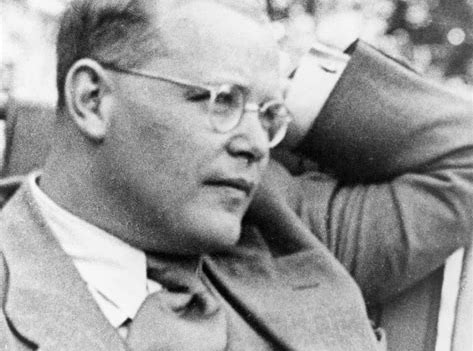These landed really hard on me this week. I realize that both of these have been very true of me for a long time. I have often felt lonely even in the midst of Christian community. I also know that I often confess and forgive myself even when “confessing” to God. Bonhoeffer’s comments here ring 100% true.
“‘CONFESS YOUR SINS to one another’ (James 5:16). Those who remain alone with their evil are left utterly alone. It is possible that Christians may remain lonely in spite of daily worship together, prayer together, and all their community through service—that the final breakthrough to community does not occur precisely because they enjoy community with one another as pious believers, but not with one another as those lacking piety, as sinners. For the pious community permits no one to be a sinner. Hence all have to conceal their sins from themselves and from the community. We are not allowed to be sinners. Many Christians would be unimaginably horrified if a real sinner were suddenly to turn up among the pious. So we remain alone with our sin, trapped in lies and hypocrisy, for we are in fact sinners” (p. 108).
“In confession there occurs a breakthrough to assurance. Why is it often easier for us to acknowledge our sins before God than before another believer? God is holy and without sin, a just judge of evil, and an enemy of all disobedience. But another Christian is sinful, as are we, knowing from personal experience the night of secret sin. Should we not find it easier to go to one another than to the holy God? But if that is not the case, we must ask ourselves whether we often have not been deluding ourselves about our confession of sin to God—whether we have not instead been confessing our sins to ourselves and also forgiving ourselves. And is not the reason for our innumerable relapses and for the feebleness of our Christian obedience to be found precisely in the fact that we are living from self–forgiveness and not from the real forgiveness of our sins? Self–forgiveness can never lead to the break with sin. This can only be accomplished by God’s own judging and pardoning Word. Who can give us the assurance that we are not dealing with ourselves but with the living God in the confession and the forgiveness of our sins? God gives us this assurance through one another. The other believer breaks the circle of self–deception. Those who confess their sins in the presence of another Christian know that they are no longer alone with themselves; they experience the presence of God in the reality of the other” (pp. 112–13. Emphasis original).
(Quotes taken from Dietrich Bonhoeffer, Life Together, ed. Geffrey B. Kelly, trans. Daniel W. Bloesch and James H. Burtness, vol. 5 of DBW Minneapolis: Fortress Press, 2005.)
Confession is a distinct and essential Christian practice, one I think the evangelical church has allowed to fade from any meaningful use in common church practice. Bonhoeffer later notes that Luther says in his Larger Catechism, “when I exhort you to go to confession, I am doing nothing but exhorting you to be a Christian” (Robert Kolb, Timothy J. Wengert, and Charles P. Arand, The Book of Concord: The Confessions of the Evangelical Lutheran Church [Minneapolis, MN: Fortress Press, 2000], 479).


Comments